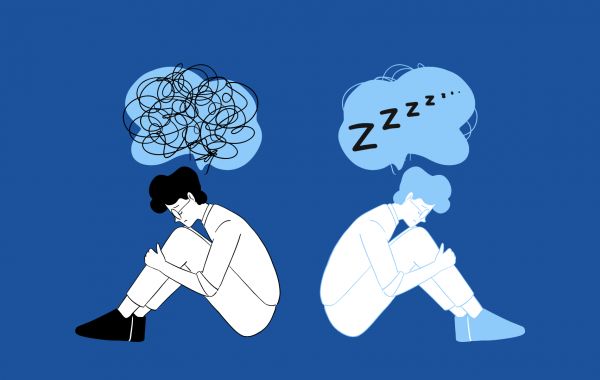Insomnia, a condition characterized by difficulty falling asleep or staying asleep, is a pervasive and often frustrating sleep disorder that affects millions of people worldwide. Despite its prevalence, insomnia remains widely misunderstood, with many individuals struggling to find effective solutions for their sleeplessness. In this article, we delve into the intricacies of insomnia, exploring its causes, symptoms, consequences, and potential treatments, in an effort to shed light on this elusive enemy of slumber.
Defining Insomnia: The Sleep Thief
Insomnia is more than just the occasional sleepless night—it is a chronic condition that can significantly disrupt an individual's ability to obtain restorative sleep on a regular basis. While the duration and severity of insomnia can vary from person to person, its hallmark features include difficulty initiating or maintaining sleep, waking up too early and being unable to return to sleep, and experiencing non-restorative sleep despite adequate opportunity for rest.
Types of Insomnia: Acute vs. Chronic
Insomnia can be classified into two main types based on its duration: acute and chronic. Acute insomnia is short-term and often triggered by specific events or circumstances, such as stress, jet lag, or changes in sleep environment. In contrast, chronic insomnia persists for at least three nights a week for three months or longer and is typically linked to underlying medical, psychological, or lifestyle factors. Chronic insomnia can have more profound and long-lasting effects on physical and mental health.
Causes and Contributors
Insomnia can arise from a multitude of factors, including physiological, psychological, environmental, and behavioral influences. Common contributors to insomnia include stress, anxiety, depression, chronic pain, medical conditions such as sleep apnea or restless legs syndrome, medications, caffeine or alcohol consumption, irregular sleep schedules, and poor sleep hygiene practices. Identifying and addressing these underlying factors is essential for effective treatment of insomnia.
Symptoms and Consequences
The symptoms of insomnia extend beyond mere sleeplessness and can have far-reaching consequences for physical, mental, and emotional well-being. Individuals with insomnia may experience daytime fatigue, irritability, difficulty concentrating, memory impairment, mood disturbances, and impaired performance at work or school. Chronic insomnia has been associated with an increased risk of developing other health conditions, including obesity, diabetes, hypertension, cardiovascular disease, and mental health disorders such as depression and anxiety.
The Vicious Cycle of Insomnia
Insomnia often perpetuates a vicious cycle wherein sleeplessness leads to increased stress and anxiety, which, in turn, exacerbate insomnia symptoms, creating a self-perpetuating cycle of sleeplessness and distress. This cycle can be challenging to break without targeted interventions aimed at addressing both the underlying causes and consequences of insomnia. Left unchecked, chronic insomnia can have a profound impact on quality of life and overall health.
Diagnosis and Evaluation
Diagnosing insomnia involves a comprehensive evaluation conducted by a healthcare professional, such as a physician or sleep specialist. This may include a detailed medical history, physical examination, sleep diary, and possibly sleep studies such as polysomnography or actigraphy to assess sleep patterns and rule out other sleep disorders. Identifying and addressing underlying medical or psychological conditions is essential for effective management of insomnia.
Treatment Approaches
Treatment for insomnia typically involves a multimodal approach combining behavioral interventions, lifestyle modifications, and, in some cases, pharmacotherapy. Behavioral interventions such as cognitive-behavioral therapy for insomnia (CBT-I) have been shown to be highly effective in improving sleep quality and addressing maladaptive thoughts and behaviors related to sleep. CBT-I may include techniques such as sleep restriction, stimulus control, relaxation training, and cognitive restructuring. Pharmacotherapy options for insomnia include over-the-counter or prescription sleep aids such as benzodiazepines, non-benzodiazepine hypnotics, or melatonin agonists. However, medications should be used judiciously and under the guidance of a healthcare professional, as they may carry risks of dependence, tolerance, and side effects, particularly with long-term use.Lifestyle modifications can also play a significant role in managing insomnia and promoting restful sleep. These may include establishing a regular sleep schedule, creating a relaxing bedtime routine, limiting caffeine and alcohol consumption, avoiding stimulating activities before bedtime, and creating a comfortable sleep environment conducive to restorative sleep.
Seeking Support and Resources
Living with insomnia can be challenging, but it's essential to remember that you're not alone. Seeking support from healthcare providers, support groups, or mental health professionals can provide valuable guidance, encouragement, and resources for managing insomnia effectively. Additionally, online resources, books, and educational materials can offer insights, tips, and strategies for improving sleep quality and overall well-being.
Conclusion
Insomnia is a complex and multifaceted sleep disorder that can have profound implications for physical health, mental well-being, and overall quality of life. By understanding the causes, symptoms, and consequences of insomnia and exploring various treatment options, individuals can take proactive steps to manage their sleeplessness and improve their sleep quality. Through adopting healthy sleep habits, seeking support and resources, and addressing underlying factors contributing to insomnia, individuals can reclaim control over their sleep and enhance their overall health and well-being.








